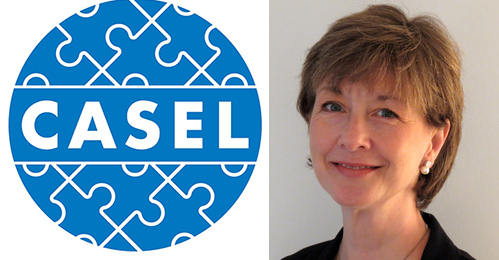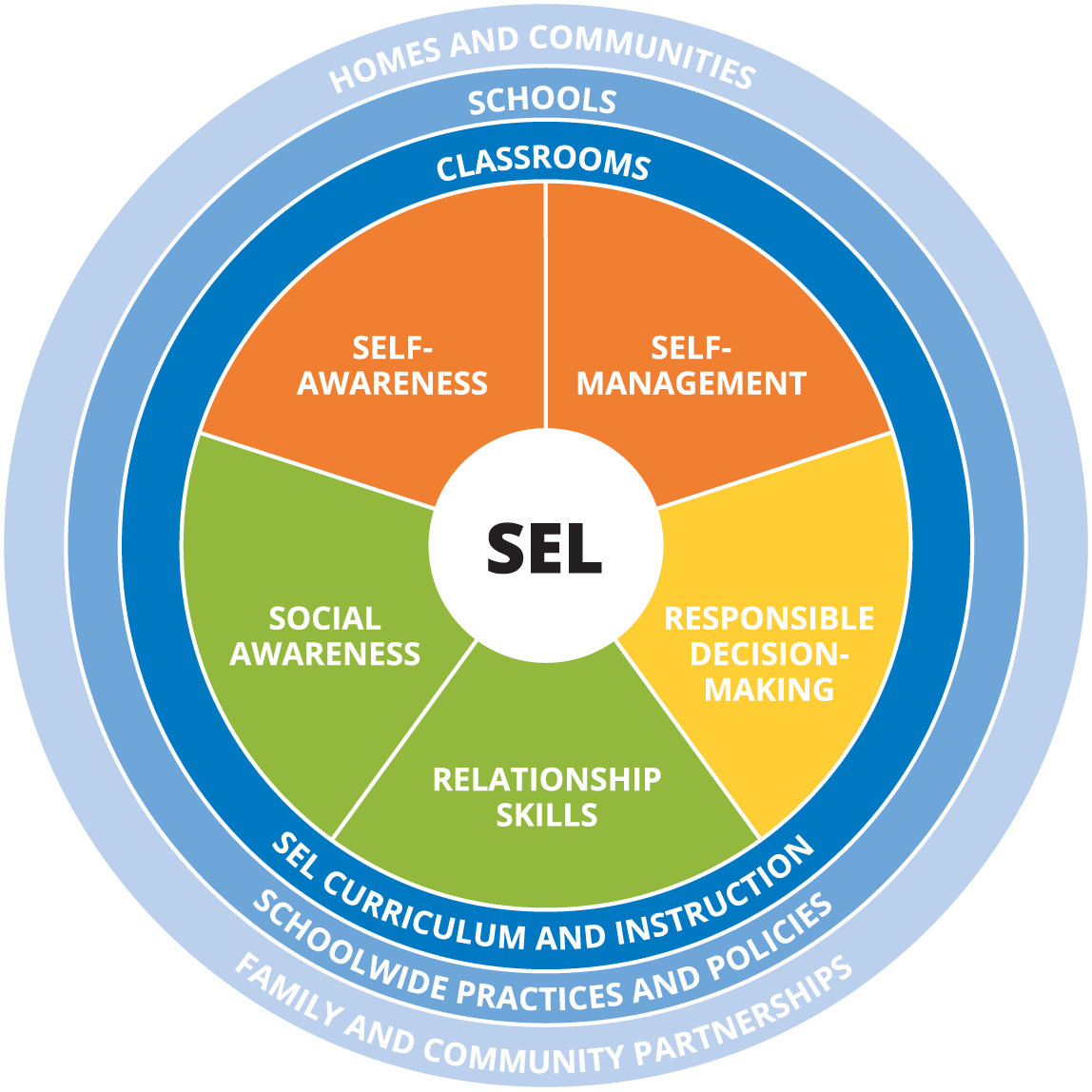Delaware Teachers Lead the Way on SEL: A Q&A with CASEL’s Linda Dusenbury

As a teacher, social and emotional learning is part of my daily life. Inside my classroom, we focus on developing students’ academic skills alongside holistic approaches to SEL.
This year, I was a member of the Rodel Teacher Council’s advocacy group that focused on social and emotional learning. Our goal: To kickstart a process for Delaware to develop SEL competencies—a common language for what students should know and be able to do when it comes to their social and emotional development.
Through our research (which we turned into Creating A Common Language for Social and Emotional Learning in Delaware) we connected with the Collaborative for Academic, Social, and Emotional Learning (CASEL). In April, the RTC and Capital School District hosted Linda Dusenbury, the consulting senior scientist and director of the Collaborating States Initiative at CASEL, to visit Delaware. She shared with interested districts, charters, and other partners about the free technical assistance that CASEL offers to other states that are a part of the Collaborating States Initiative (CSI).
As the RTC moves forward with its Delaware partners in collaborating together to formally join CASEL’s CSI and develop a common language for SEL in Delaware, I spoke with Linda to get her take on how Delaware is doing.

What is your role at CASEL? Why are you passionate about this work?
In 2016, Roger Weissberg and I worked together to launch the CASEL Collaborative States Initiative to work with states and school districts to help ensure that, from preschool to high school, students are fully prepared—academically, socially, and emotionally—to succeed in school, at work, and in life. The purpose of the CSI is to help states that want to develop policies or guidelines to support implementation of high-quality, systemic, evidence-based social and emotional learning. Our recent report captures our initial insights from the CSI, which has grown dramatically in the past years. In February 2018, teams from 25 separate states attended the national CSI meeting.
My background is as a psychologist and a research scientist. We know from research that there are intentional strategies that parents and educators can use to help equip kids for success in school and in their lives in the future. When we as educators and parents are intentional and conscious about what we do to create optimal environments for growth and development, it is possible to optimize child development—to have students be better equipped as students today and in the future as adults in the workforce and society.
What did you learn about Delaware when you were here?
So many good things! I already knew that you were being very thoughtful about SEL. It’s clear the Rodel Teacher Council members are already super informed about SEL from listening to educators across the state, and you also have amazing groundwork with the Rodel Foundation’s new SEL landscape analysis (A Broader Vision of Student Success: Insights and Opportunities for Social and Emotional Learning in Delaware). That’s a tremendous and very important step forward—a real strength from my perspective.
You’ve also got a real emphasis that I saw—including from your Secretary of Education—on the importance of districts and charters being engaged and even leading this process. It’s so important to ground this work around local community priorities and perspectives on SEL.
CASEL is interested in supporting collaboration between districts, charters, and their state leaders. The local leaders, with support of the state, are the ones who will leading the way, and becoming an example for other districts who may want to get into the work.
We’re already learning tremendously from Delaware. The state education agency clearly has enormous respect for the districts and charters, and wants to support local leadership and goals. If Delaware becomes part of the CSI, I’m sure we will be pointing to your example a lot.

Speaking of educators, what should their role be in developing SEL competencies?
It’s critical that educators be involved with articulating what students should know and be able to do with regard to SEL.
SEL isn’t a new concept. It’s something that’s always happening in human development, across the lifespan. We are social and emotional creatures. Whether we’re thinking about it or not, kids are developing socially and emotionally throughout their lives, every waking moment. We all are.
What SEL as an approach is trying to do in partnership with educators, is to become intentional and strategic in creating optimal conditions for social and emotional development.
Depending on the circumstances in their school environment, kids can feel safe and encouraged to take risks in their classroom environment, or they may feel anxious—and may withdraw or act out. SEL works to answer the questions: What are the components of an optimal classroom experience, and how can we promote those systemically so that all students feel safe and engaged, and have an opportunity to learn collaboration skills with other students, so that students engage in positive ways with each other and their teacher? SEL helps develop a climate that is safe and encouraging, where learning can be optimized.
Do you have any feedback on our next steps as we work with an emerging Delaware SEL collaborative (comprised of K-12—including leading districts and charters—government, higher education, and community groups) to formally join CASEL’s CSI?
In every case we encourage a working group like the one that’s emerging in Delaware to agree on a common vision—which, in a way, you all have—around SEL. But then, what would your goals be for advancing that vision?
Our process is to ask a state team to tell us their goals for advancing SEL over the next year and a half, based on the unique context of each state. Some states decide to articulate SEL competencies.Some focus on how to support professional development. Some develop different types of guidance around implementation or assessment, or linking SEL to equity. Some do a combination of these things.
We see you as the experts in Delaware. We’re happy to support you in your work so that what you develop is fully supported by evidence-based practice in SEL. As you develop policy, we can work with you to identify and develop resources. We also offer to review and comment on the guidance you may develop. But we see you as the team that will best decide your priorities and goals. We are committed to supporting you (by sharing examples that may be helpful from other states, and by sharing information about evidence-based practices, for example) in achieving your goals for SEL.
Is there anything else we haven’t covered that you want to say about Delaware, the teacher council, and our SEL work?
Just to reinforce that I am so impressed with the thoughtful approach you’ve taken, and with the multiple constituents that have come together around this work. The partnership that the Rodel Teacher Council and Rodel Foundation have are a tremendous strength. The number of organizations that are represented are also a tremendous strength.
You see yourself at the beginning. I see you as so far ahead in terms of all of the resources and thinking that you’ve already done–including the thoughtful framing you’ve done and the resources you’ve created. I see you as ready for this work and we at CASEL are really excited to see the plan that you develop.
Lindsay Hudson-Hubbs is a REACH (Restoring Educational Achievement through Collaborative Health Services) classroom teacher in Woodbridge School District, and a member of the Rodel Teacher Council.